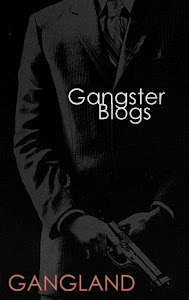David James Oliynyk appealed his 2005 conviction on a number of counts, including how the police identified him by voice while he transported by car between Vancouver International Airport and the Chilliwack RCMP detachment in July, 2001.
The trial judge had found Oliynyk and Joseph Elwood Roger Lepage, who was arrested at home in Kelowna, guilty and sentenced them to 18 and 12 years, respectively. A third suspect was also found guilty during the same trial in 2005 but was not part of this appeal.
The three-person appellate court panel dismissed his appeal and that of Lepage on March 28. The two fought their convictions for conspiracy to traffic and import cocaine for different reasons, most notably the manner in which police made voice identifications against them."There was no attempt by the police to elicit information about the crimes from the appellants, nor could there be any doubt on the part of these appellants that they were conversing with police officers. The voice identification evidence obtained by the arresting officers was obtained openly by the officers in the course of a normal arrest procedure," Justice John E. Hall wrote in last week's court decision.
After being arrested at the airport in 2001, Oliynyk was advised of his right to counsel and to remain silent. He asked to speak to a lawyer but the police officers told him he would have to wait until he arrived in Chilliwack, a couple of hours after his arrest.Oliynyk was described in court documents as a full-time member of the White Rock Hell's Angels but was living in Abbotsford at the time of the investigation.
Shortly after he was arrested, he spoke briefly with the police, asking who had "ratted" on him. A police officer later testified he could make an identification of Oliynyk's voice, which was a crucial element as the alleged narcotics network with Oliynyk and Lepage, among others, was being monitored through wiretapping.The original trial judge concluded the police could have made arrangements for Oliynyk to phone a lawyer from the Richmond detachment, but also found no reason to exclude the officer's voice identification.
Lepage similarly argued against a voice identification by police when he was arrested at a home in Kelowna."It is difficult to appreciate on what basis the evidence could or should be ruled to be inadmissible. In my opinion, the judge did not err in ruling the evidence of voice identification to be admissible," Hall wrote.
Oliynyk was one of a number of people identified through the wiretapping investigation of drug activities, one that had roots in the 1996 disappearance and grisly murder of a Chilliwack couple.A brief article in the Aug. 20, 1996 Times first mentions the discovery of resident John Michael Bayer Jr.'s remains five days earlier near Boston Bar.
His common law wife, Lani Louise Sheldon, was never found.
"There is a concern she may have met a similar fate," a police inspector said in a follow-up article.
The victims were believed to have been involved in drug trafficking. After the murder, police sought and finally received authorization in 2000 to gather wiretap evidence against people suspected of Bayer's death and Sheldon's disappearance. Through this, they gained information about the drug network that included Oliynyk and Lepage.
GANGWORLD CUSTOM SEARCH

Custom Search
Subscribe to:
Post Comments (Atom)













0 comments:
Post a Comment